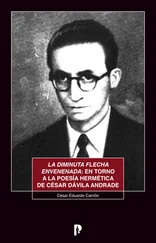On an oval-shaped islet between the two square blocks of the Plaza stood the Palacio Municipal, that famous art-deco slab, that inside-out piano of white cement, and from its windows the mayor and his cohorts were watching the catastrophe. For some reason, the attackers had skipped it. The moment they saw that the Line had been breached, the occupants of the Palacio took the precaution of turning off all the lights. Even so, they knew their fate hung by a thread: if even a small group of the corpses they were watching pass through the Plaza decided to pay them a visit, it would all be over. The flight of the crowd probably worked in their favor — they constituted so much more visible and numerous prey than could possibly be concealed inside the wings of the Palacio. The police headquarters across the street hadn’t been so lucky: the policemen had tried to put up a fight, and were annihilated, along with the drunkards sleeping it off in their cells. The same thing happened at the church, on the other side of the Plaza, though with fewer victims. Only the priest was in the rectory, along with his wife and two children (in open rebellion against the archbishop of Bahía Blanca, the parish priest was defiantly living with his family).
The mayor did not have a Plan B. It would have to be improvised. The lines of communication with the police having gone dead, there was nobody with whom to coordinate emergency measures. Out of the confused discussions taking place at the windows emerged the only course of action that seemed reasonable: to evacuate Pringles, using all available vehicles. But how would he give the order? The cell phones were functioning at white heat, but for the first time, word of mouth didn’t appear to be fast enough. One news item that reached them that way made even more urgent the need for overall coordination: many people, most in fact, were making the mistake of locking themselves in their houses, which then became fatal traps. They had to find a way to warn those who still had time to escape. An old civil servant had the idea of using the Propaladora . This ancient system of communication hadn’t been used for exactly fifty years, to the day, but they trusted it would still function, considering that in the first half of the last century electrical equipment was built with craftsmanship, with a view to permanence. The fact that it was still in place (though unplugged: but that could easily be remedied) was due to historico-sentimental circumstances: the last transmission by Propaladora was made on the night of the sixteenth of September 1955, when the last Peronist mayor of Pringles, in an heroic gesture, ordered the Marcha —the national anthem — sung by Hugo del Carril to be played throughout the blacked-out town in order to drown out the sounds of the bombs being dropped by the air force on nearby Pillahuinco. This mayor’s unforgettable civic courage, this posthumous proof of loyalty after the popular regime had already fallen, guaranteed that nobody would dismantle the device nor remove the cables from the metal loudspeakers, which continued to rust away atop the town’s cornices and electric poles.
And, in effect, it worked. The evacuation order, a concise and appropriately alarmist message, echoed through the night of the living dead, and all Pringlesians heard it. Not everybody obeyed, which saved many others because it was no longer easy to flee. The streets were infested with thirsty corpses, who fell upon the head of anybody who came out of their house. And the only thing it achieved was to save them the trouble of breaking down doors and tripping over furniture — which they did whenever necessary.
Scenes of horror and trepanation were repeated over and over in a terrifying chaos of simultaneity throughout the downtown area, and they spread further and further into outlying areas by the minute. In the Palacio, deliberations got mired in defeatist anomie. Nobody dared leave, but they also couldn’t find anything practical to do besides worry about their families. Among those gathered was the police medical examiner, a distinguished and highly respected Pringles surgeon, philanthropist, and scholar — he had come when the first alarm was raised. They asked him if there was any explanation for the strange events they were witnessing (and suffering).
No, of course there was no explanation, just like there were no antecedents, as far as he knew. According to what they’d seen till now, the dead had risen from their graves because of a sharp craving for active endorphins; Nature, or a post-Nature of unknown characteristics, had provided them with the motor skills necessary to acquire it themselves, in the quickest and most efficient way possible.
At the request of those in attendance, he briefly described endorphins, the substance produced by the brain for its own use — an optimizer of thought, or the thoughts of an optimist. He employed the hackneyed metaphor of the glass half full or half empty.
Were they necessary for life?
No. Extending the metaphor, one could say that the glass contained liquid to the midpoint, and that was life. The fact that it could be seen as “half full” or “half empty” didn’t change the concrete situation — that is to say, organic life as a real process — it only made this life livable or unlivable. The lack of antecedents for this event could be due to the fact that science had never been curious enough to measure hormonal secretions once organic activity stopped at death. It was possible that a kind of syndrome of abstinence took place, and that this was the equivalent, like a simulacrum, of life, after life. In reality, he said, after thinking about it for a moment, it wasn’t entirely true that there were no antecedents. Perhaps, on the contrary, they abounded. Perhaps that was all there was, and they were suffering the consequences of an overflow of antecedents. Hadn’t they seen the same plot in countless movies, in stories and popular legends that hailed from the oldest antiquity and from all the peoples on Earth? Perhaps ancient and latent wisdom deep in humankind knew what science still did not.
From there, he could only speculate, and respond with hypothetical speculations to the questions they were asking. Above all, to one question, which was of burning importance: Was there any way to stop them? A priori, no, there wasn’t. The final and definitive means for stopping danger that came from another person was death. And in this case, that wasn’t applicable. He didn’t deny that there could be others. If death was the final means, it meant that there existed all the others that came before it, making it “final”; these spanned from verbal interventions (“Please, I’d prefer that you didn’t”) to incineration or exorcism, for example. Any of those might work, but which one? Sooner or later, someone would find one through the method of trial and error. Unfortunately, he didn’t think it would be them; they wouldn’t have time.
At this point he repeated that he was speculating in a vacuum, adding that maybe by now new information would be available. He called the cell phone of a colleague and found out that at the Clinic, where this colleague was, the doctors were meeting to analyze the situation, just as they were doing. The same thing was happening at the Hospital, which was further away, almost on the outskirts of town on the way to the Station. The Clinic, more centrally located, was at the other end of town from the Plaza and the Palacio; the attackers were approaching it, and a brave group of people from the neighborhood had set up warning relays along the adjacent streets, and the doctors were preparing, with the help of some burly male nurses, to capture one of the ambulatory corpses and submit it to a dissection that would, with any luck, reveal the secrets of its functionality in the afterlife. They were already in touch with the Hospital, which had more advanced diagnostic equipment, in order to coordinate the effort.
Читать дальше












